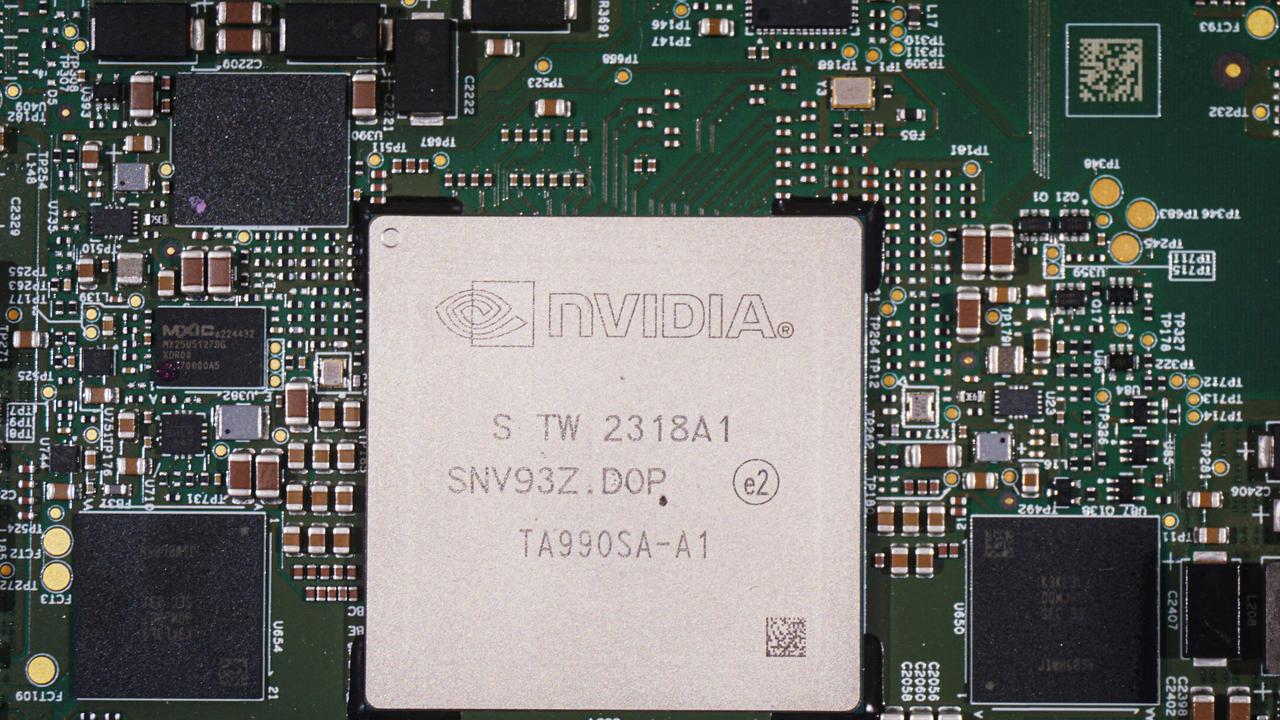Fears that AI bubble could burst after Nvidia’s $646 billion crash
One company’s epic fall from grace has sparked fears that a major market correction is on the way.
The rise and fall AI tech chip manufacturer Nvidia is reminiscent of a reigning monarch on hit TV show Game of Thrones.
Top of the world one minute, then plummeting from grace in an epic and disastrous way that will be spoken about for years to come the next.
Earlier this week, Nvidia shed a whopping $646 billion on the stock market over the course of a horror three days.
That’s the biggest amount that has been erased for any company in the history of the world, according to data compiled by Bloomberg.
It followed just a week earlier when Nvidia had taken the title as the world’s most valuable company, overthrowing Microsoft from the coveted position as the biggest business in the globe.
But a few days later, at market close on Monday US time, Nvidia’s market cap had sunk to $4.36 trillion ($US2.9 trillion).
That put it squarely behind Microsoft, at a market cap of $4.96 trillion ($US3.3 trillion), and Apple, coming in at $4.81 trillion ($US3.2 trillion).
Its dramatic plunge has sparked concerns from experts that AI companies like Nvidia are in a ‘bubble’ that could burst any second.

Nvidia’s CEO and founder Jenson Huang established Nvidia in 1993 on his 30th birthday to bring three-dimensional graphics into the gaming and multimedia markets.
The Taiwanese-born tech whiz — who moved to Kentucky at age 9 — took his business from a mostly obscure
entity selling GPU devices to gamers, to a massive business after branching out into AI and enjoying unprecedented growth.
In a sign of its eye-watering rise to power, only last year did Nvidia manage to reach a market cap of $US1 trillion, and then a few short months later it tripled its value and briefly toppled Microsoft and Apple.
Nvidia has risen stock has risen about 750 per cent since the beginning of last year and is singlehandledly responsible for about 35 of one US stock market’s gains this year.
But some think Nvidia has flown too high, too fast, and that this week’s crash is a precursor of more to come – some with drastic consequences.
The problem is, according to one market analyst, that Nvidia’s stock market is overvalued and overhyped – a sure sign of it being held in a bubble.
“Nvidia’s rich valuation is ludicrous — its market cap now exceeds that of the entire FTSE 100, yet its sales are less than four per cent of that index,” said Emily Bowersock Hill, CEO and founding partner of Bowersock Capital Partners.
Other experts have weighed, with similarly sobering views.

Goldman Sach’s head of global equity research Jim Covello likened Nvidia’s situation this week to the dot com bubble in the 1990s and early 2000s and said AI was creating its very own bubble, ripe for bursting.
“The bursting of today’s AI bubble may not prove as problematic as the bursting of the dot-com bubble simply because many companies spending money today are better capitalised than the companies spending money back then,” he said.
“But if AI technology ends up having fewer use cases and lower adoption than consensus currently expects, it’s hard to imagine that won’t be problematic for many companies spending on the technology today.”
During the dot com bubble, the top ten stocks had a ratio of 24 times the amount of value compared to their actual earnings, but soon weren’t able to live up to expectations and crashed.
Recently, Deutsche Bank also issued their own warning.
The bank’s financial research strategist Jim Reid said there were “signs of over-exuberance” about Nvidia.
A lot of what happens next depends on the future of Artificial Intelligence, and how big and commonplace it will become in society.

In September last year, when Nvidia hit 232 per cent growth for the year, it sparked a similar slew of warnings that the stock was heading for a bruising on the markets.
At the time, Nvidia’s CEO Mr Huang became $6.5 billion richer over a single night after a market rally.
Robert Arnott, US investor and chairman of Research Affiliates, wrote in September that Nvidia is “a textbook story of a Big Market Delusion” in a scathing note.
Mr Arnott pointed out that Nvidia’s shares are trading at around 110 times its earnings, which is not viable in the long run.
“Overconfident markets paradoxically transform brilliant future business prospects into even more brilliant current stock price levels,” he continued.
“Nvidia is today’s exemplar of that genre: a great company priced beyond perfection.”




